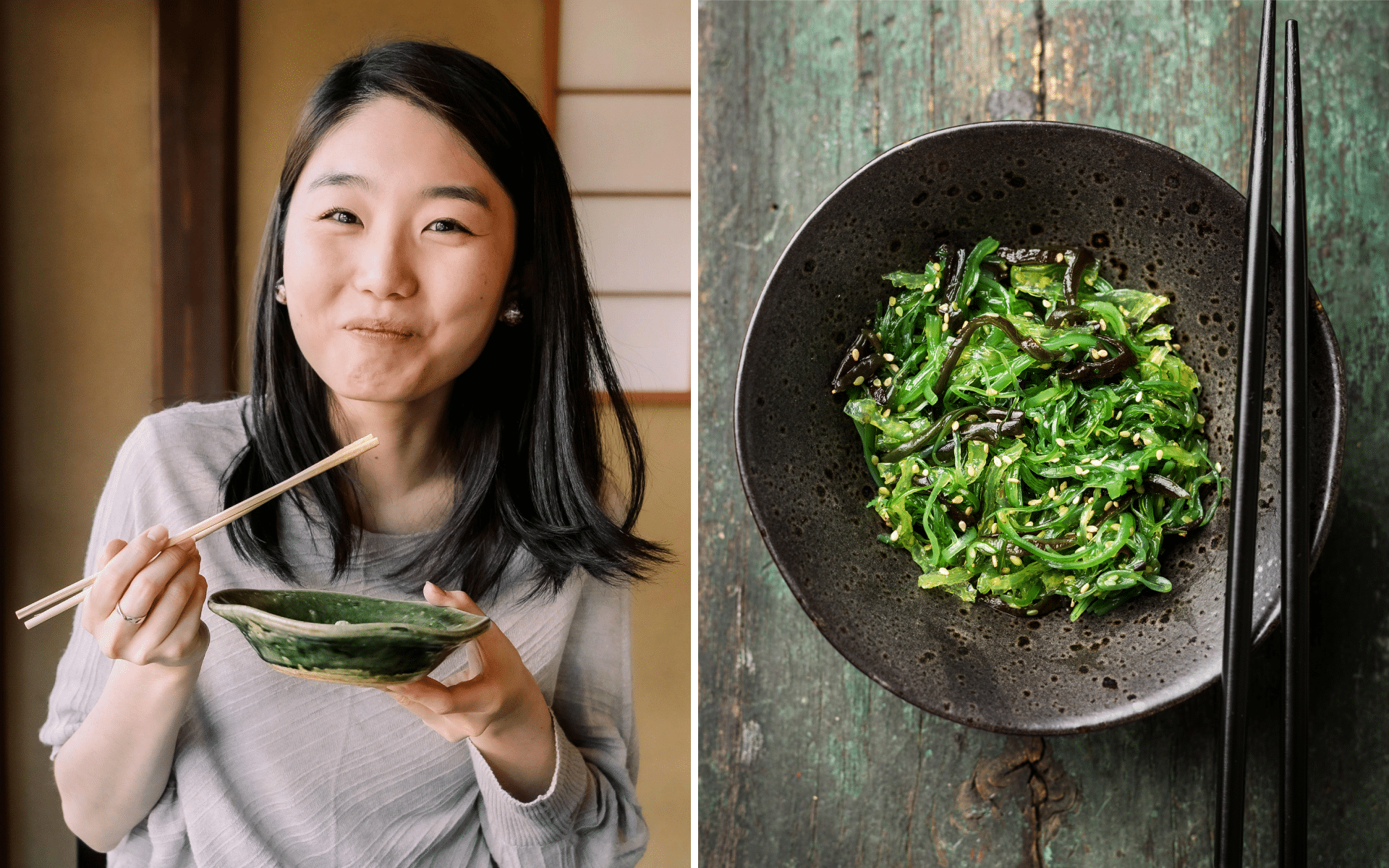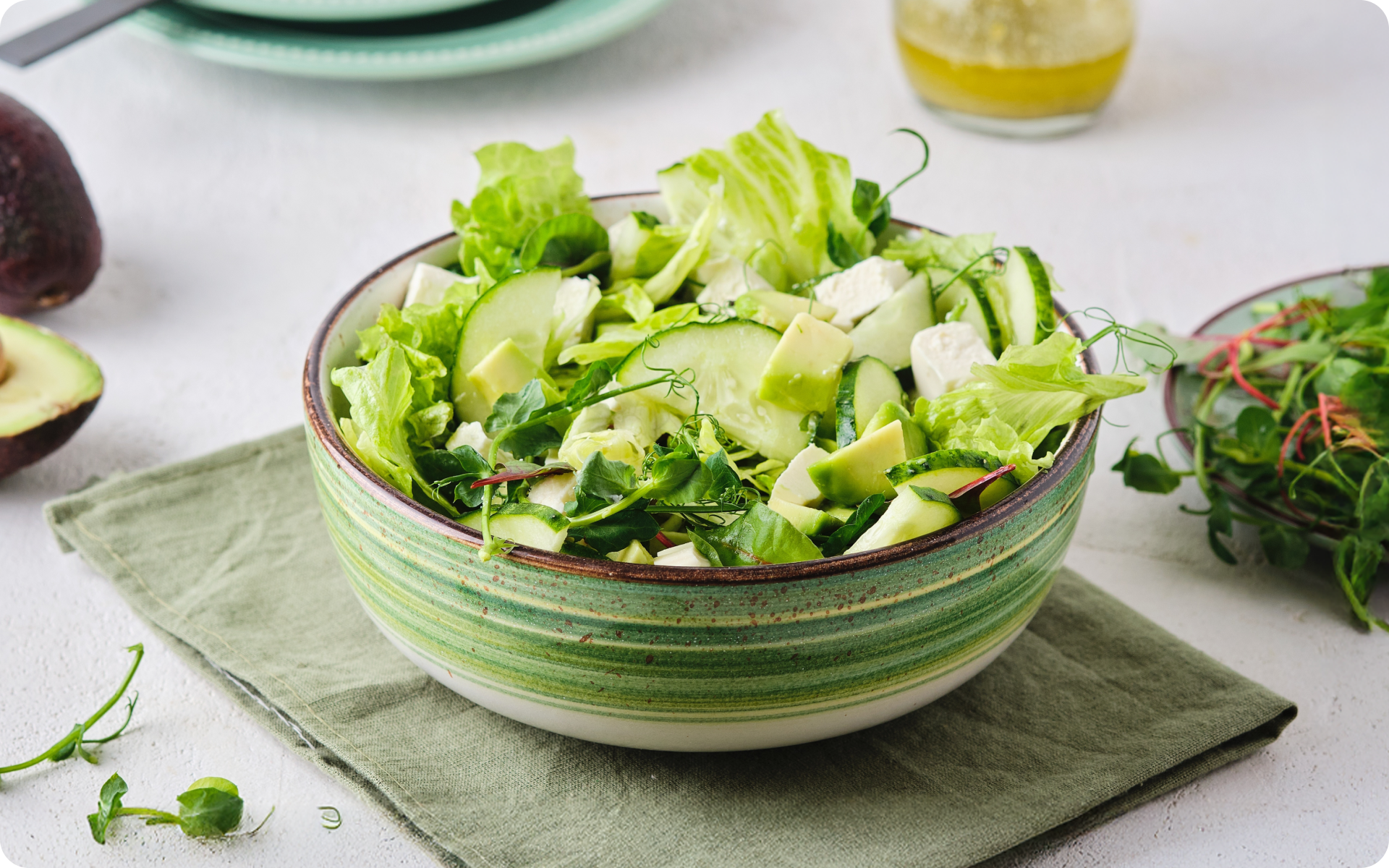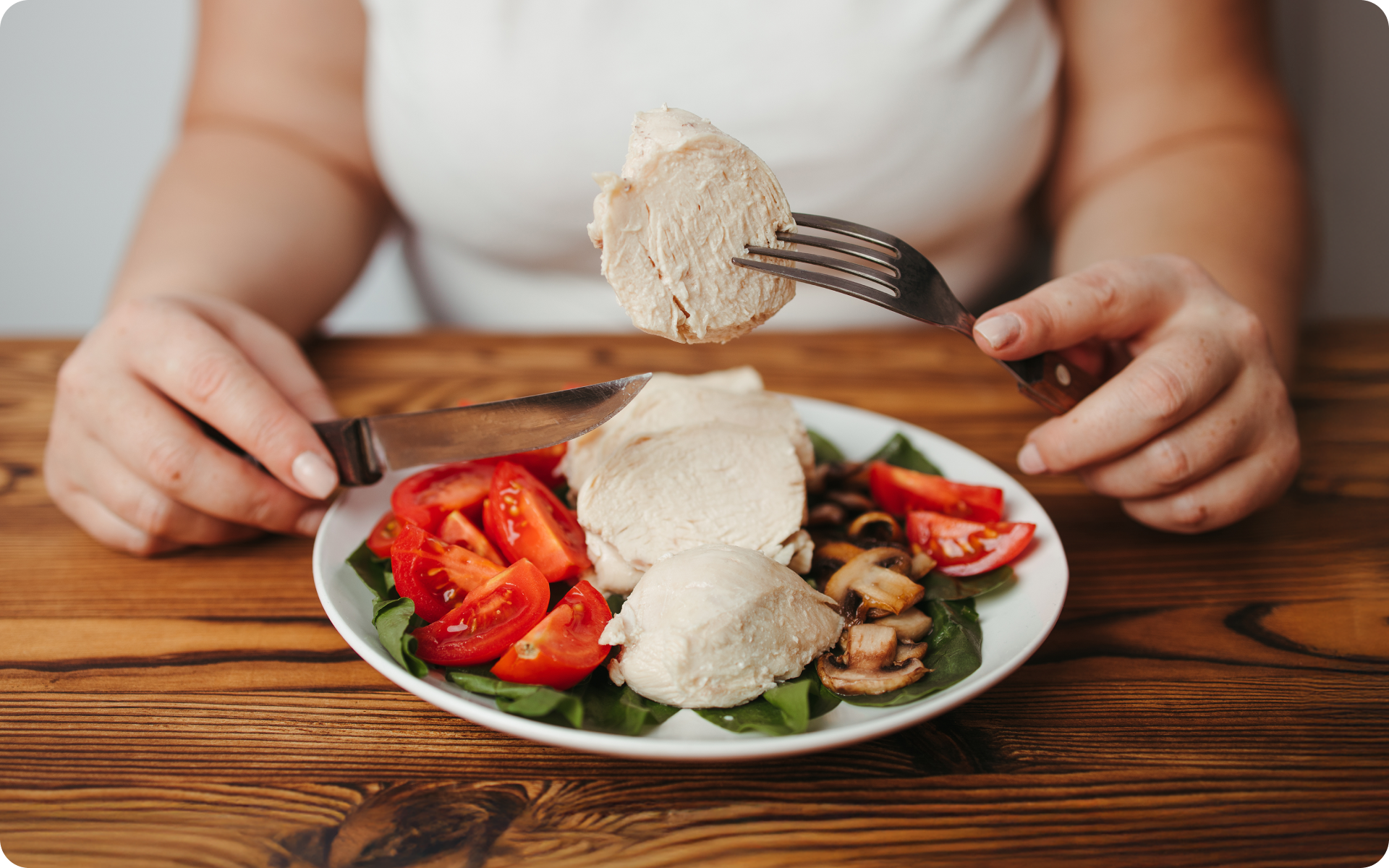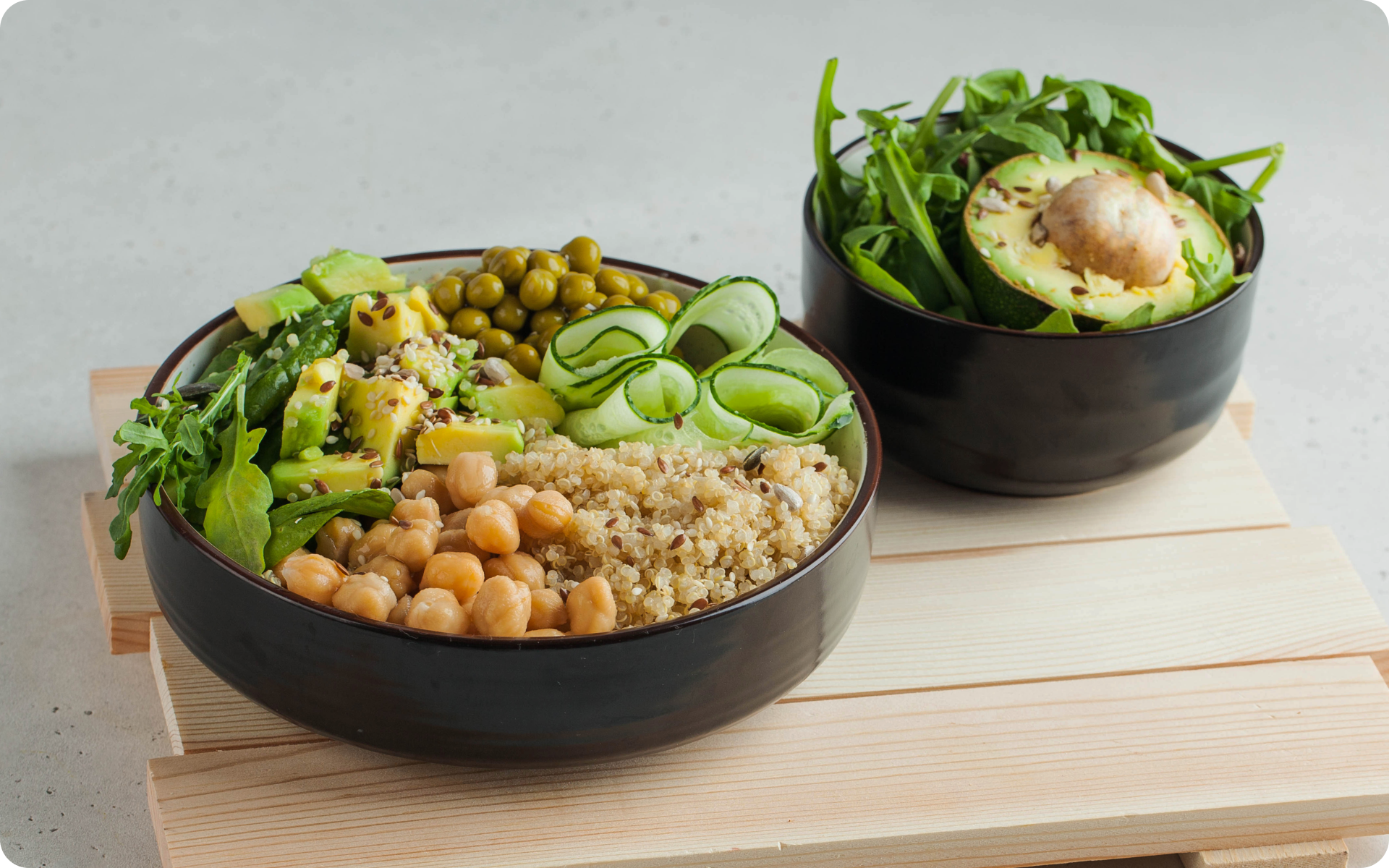The Japanese diet, which is celebrated for its simplicity and nutritional richness, has gained global recognition as one of the healthiest ways of eating. Characterized by fresh, seasonal ingredients, balance, and mindful eating practices, it offers a lifestyle that goes beyond meals. This article explores the components, health benefits, and cultural significance of the Japanese diet, shedding light on why it promotes longevity and well-being.
What Is the Japanese Diet?
Washoku, also known as traditional Japanese cuisine, is a social practice that encompasses a set of skills, knowledge, practices, and traditions related to the production, processing, preparation, and consumption of food (1). The term “Washoku” combines the characters 和 (wa), which means ‘Japan’ or ‘harmony’, and 食 (shoku), which means ‘food’ or ‘to eat’.
Washoku emphasizes seasonal ingredients, a balance of flavors, and a variety of dishes, often including rice, fish, vegetables, and soy products. It’s known for being healthy and is recognized by the United Nations Educational, Scientific and Cultural Organization as an Intangible Cultural Heritage.
What to Eat on the Japanese Diet
At its heart, the Japanese diet revolves around natural, minimally-processed foods. Every meal is carefully curated to ensure a balance of flavors, aesthetics, and nutrition (2). Here are the key ingredients that define this dietary tradition:
1. Rice – The Foundation
Rice, particularly steamed white rice, is a staple in Japanese cuisine. It serves as the foundation for most meals, providing a source of energy through complex carbohydrates (3). Brown rice is sometimes used for its higher fiber content, but white rice remains culturally significant.
Donburi, or rice bowls, are a popular form of meal in Japan. They feature a bed of white rice topped with various ingredients like eggs (oyakodon), beef (gyudon), or raw fish (kaisendon). This dish is a testament to the simplicity and versatility of white rice in Japanese cuisine.
Rice preparation is deeply rooted in tradition and ceremony. The polishing of rice, its steaming, and its presentation are done with care, which reflects the Japanese respect for their staple food as a symbol of sustenance and gratitude.
2. Fish and Seafood – The Main Source of Protein
With Japan being an island nation, fish and seafood have always been abundant and integral to the diet. A typical Japanese meal features a small serving of protein, usually in the form of grilled or simmered fish (sakana). Other seafood delicacies such as shrimp (ebi), squid (ika), and octopus (tako) are also popular.
The high consumption of fish in the Japanese diet has been linked to several health benefits, including a lower risk of heart disease and improved brain function due to its omega-3 fatty acid content (4).
3. Seasonal Vegetables – A Rainbow of Nutrients
The Japanese diet emphasizes seasonal and locally-grown vegetables, which results in a diverse and colorful array of produce in meals. Vegetables are often lightly cooked or enjoyed raw to preserve their nutrients and flavors.
In Japan, the concept of ichijū-sansai (literally meaning “one soup, three dishes”) is followed, where meals are composed of a soup and three accompanying dishes. Vegetables play a significant role in these dishes, providing a range of vitamins, minerals, and antioxidants to support overall health (5).
4. Soy – A Plant-Based Protein Source
Soybeans and soy-based products such as tofu and miso are also prominent in the Japanese diet. These plant-based proteins offer an alternative to animal protein sources and are rich in essential amino acids (6).
Miso soup, which is made with fermented soybean paste, is a staple side dish that accompanies many meals in Japan. This soup contains probiotics that help with digestion and have been linked to improved gut health (7).
5. Seaweed – A Superfood from the Sea
Seaweed varieties such as nori, wakame, and kombu are used extensively in soups, salads, and sushi. Rich in iodine, calcium, and other trace minerals, seaweed contributes to proper thyroid function and overall health (8). It also adds umami flavor to dishes, which makes them more satisfying and flavorful.
The BetterMe: Health Coaching app will provide you with a host of fat-frying fitness routines that’ll scare the extra pounds away and turn your body into a masterpiece! Get your life moving in the right direction with BetterMe!
6. Green Tea – The Antioxidant Powerhouse
Green tea, particularly matcha, is a beloved beverage in Japan. Packed with antioxidants such as catechins, it helps reduce oxidative stress, enhance metabolism, and promote relaxation (9, 10).
Beyond its famous antioxidant benefits, tea drinking in Japan is steeped in history and ritual. Here’s an exploration of green tea styles and other culturally significant varieties:
- Sencha: The most commonly consumed tea in Japan, sencha is a mildly astringent green tea that is made from steamed tea leaves. Its bright, grassy flavor is enjoyed daily, reflecting its place as a household staple.
- Genmaicha: This tea blends green tea leaves with roasted brown rice to create a nutty, toasted flavor. Known as “popcorn tea”, it is adored for its comforting warmth and affordability, which makes it a favorite among everyday drinkers.
- Hojicha: A roasted green tea with a rich, smoky aroma, hojicha is low in caffeine, which makes it ideal for evening relaxation. Its distinctive preparation involves roasting the leaves over charcoal, giving it a unique taste profile.
Tea drinking in Japan extends beyond refreshment. It fosters social interactions, spiritual reflection, and an appreciation for simplicity and beauty. Each tea type has its own unique significance and preparation method, which reflects the depth and diversity of Japanese culture.
7. Fruits – Nature’s Dessert
Fruits such as apples, persimmons, and mandarins are consumed in moderation, often as a light dessert. The focus is on quality and freshness, aligning with the overall mindful approach to eating.
Read more: Japanese Eggplant Recipes: A Taste of Japan at Home
Why Is the Japanese Diet the Healthiest?
The health benefits of the Japanese diet have been well-documented and provide insight into the impressive longevity and low rates of chronic diseases in Japan. Here are some reasons why this diet is considered a blueprint for health:
1. Promotes Longevity
Japan consistently boasts one of the highest life expectancies in the world (11). Regions such as Okinawa, where people follow a traditional Japanese diet, are known as “blue zones”, areas in which individuals routinely live beyond 100 years (12). Antioxidant-rich foods and anti-inflammatory practices are key contributors.
2. Reduces Risk of Chronic Diseases
The Japanese diet minimizes the intake of saturated fats and processed sugars, which helps lower the risk of heart disease, type 2 diabetes, and certain types of cancer (13). Omega-3 fatty acids from fish also protect against cardiovascular issues (14).
3. Supports Weight Management
Japan has one of the lowest obesity rates globally, partly due to its emphasis on portion control and balanced meals (15). Whole foods, low energy density, and smaller servings contribute to a healthy body weight.
4. Improves Digestion
Fiber-rich vegetables, fermented foods such as miso and natto, and nutrient-dense meals support gut health and help with digestion (16). These features make the diet both satisfying and gentle on the stomach.
5. Encourages Mindful Eating
The practice of eating slowly and appreciating food’s texture, aroma, and presentation fosters mindfulness. This approach reduces overeating and improves overall satisfaction with meals (17).
What Is the Japanese Diet Rule?
“Hara hachi bu” is a traditional Japanese philosophy that has been practiced for many centuries, particularly in Okinawa, one of the regions that is known for exceptional longevity and health. Translating to “eat until you’re 80% full”, this principle embodies mindful eating, moderation, and a deeper awareness of the body’s needs (18). It serves as a dietary guideline and a holistic approach to living a balanced and healthy life.
Origins and Cultural Significance
The idea of “hara hachi bu” has its roots in Confucian teachings, which emphasize restraint, balance, and self-discipline in all aspects of life. This particular rule has been ingrained in Japanese culture and influences how meals are prepared and consumed.
For the Okinawan people, who are celebrated for their remarkable longevity and low rates of chronic diseases, “hara hachi bu” is more than just an eating habit, it’s a lifestyle (19).
This practice is aligned with their overall philosophy of moderation, which impacts food, exercise, social habits, and even mental well-being. By stopping at 80% fullness, individuals avoid discomfort while honoring a deep respect for food, often seen as a gift of nature.
How It’s Practiced in Daily Life
Practicing “hara hachi bu” requires heightened mindfulness during meals. Here’s how the concept is observed in everyday Japanese life:
- Eating Slowly: Meals are eaten deliberately, allowing time to savor each bite. This slower pace helps the brain register fullness before overeating occurs.
- Small Portions: Serving sizes in traditional Japanese meals are generally smaller, which creates natural boundaries for consumption.
- Balanced Meals: Meals are carefully arranged to include small amounts of rice, fish, vegetables, pickles, and soup, which provide a sense of satisfaction without overindulgence.
- Appreciation of Food: Before meals, it is common to say “itadakimasu”, a phrase that conveys gratitude for the food and those involved in its preparation. This ritual fosters a mindful approach.
We discussed the pros, cons, and practices of the Okinawa Diet in great depth in our previous post.
Health Benefits of “Hara Hachi Bu”
The “80% full rule” isn’t just a cultural practice, it has significant health benefits, many of which are supported by modern science.
- Weight Management
Eating just enough to satisfy hunger naturally reduces calorie intake, which makes it easier to maintain a healthy weight. Research has suggested that calorie restriction without malnutrition is associated with longer life spans and slower aging (20).
- Improved Digestion
Stopping before reaching full capacity helps prevent the stomach from becoming overburdened, supporting better digestion and reducing the risk of issues such as bloating or acid reflux (21).
- Longevity
Studies on centenarians in Okinawa have shown that “hara hachi bu” plays an important role in lowering the risk of chronic diseases such as heart disease, diabetes, and cancer. Combined with a nutrient-rich, antioxidant-heavy diet, this practice supports cellular repair and reduces oxidative stress (22).
- Balanced Metabolism
Overeating can place strain on organs such as the liver and pancreas (23). By avoiding excess, “hara hachi bu” promotes a healthier metabolism and hormonal balance, which reduces the risk of insulin resistance and related health issues.
Tips for Incorporating “Hara Hachi Bu”
Even if you’re outside of Japan, you can adopt “hara hachi bu” into your lifestyle. Here’s how:
- Slow Down: Take at least 20-30 minutes to eat a meal. Chew thoroughly and pause between bites.
- Use Smaller Plates: Serve meals on smaller plates or bowls to encourage smaller portions.
- Listen to Your Body: Stop eating when you feel about 80% full. Drink water and give your body time to recognize its level of satiety.
- Avoid Distractions: Turn off the TV or put away your phone during meals to focus on the food and your body’s cues.
- Plan Balanced Meals: Fill your plate with nutrient-rich foods such as vegetables, lean proteins, and whole grains to ensure satisfaction without overconsumption.
- Practice Gratitude: Start meals with a moment of gratitude to instill mindfulness and appreciation.
5-Day Japanese Diet Meal Plan (Washoku-Inspired)
This 5-day meal plan is based on the principles of Washoku, emphasizing nutrition, balance, and harmony. Each meal incorporates traditional Japanese ingredients and seasonal elements.
Day 1
Breakfast:
- Grilled Salmon (Shioyaki) – Lightly salted salmon grilled to perfection.
- Steamed Rice (Gohan) – Fluffy Japanese short-grain rice.
- Miso Soup (Misoshiru) – Made with wakame, tofu, and green onions.
Lunch:
- Chicken Teriyaki Bento – Grilled chicken with a sweet-savory teriyaki glaze, served with rice, pickled daikon, and steamed broccoli.
- Seaweed Salad – Seaweed mixed with sesame oil, soy sauce, and vinegar.
Dinner:
- Sukiyaki Hot Pot – A hearty mix of beef, vegetables (napa cabbage, shiitake mushrooms, onion), tofu, and a sweet soy-based broth.
- Spinach with Sesame Dressing (Goma-ae) – Steamed spinach tossed with a sesame paste.
- Rice
Day 2
Breakfast:
- Tamago Kake Gohan – Fresh raw egg mixed with soy sauce and served over hot rice.
- Pickled Plum (Umeboshi) – A tangy, salty addition for balance.
Lunch:
- Chirashi Sushi – Sushi rice topped with a mix of fresh sashimi, egg, cucumber, and seaweed.
- Miso Soup – With clams and spring onions.
Dinner:
- Grilled Mackerel (Saba Shioyaki) – Lightly salted mackerel grilled crispy on the outside.
- Seasonal Vegetable Tempura – Fried to golden perfection, served with dipping sauce.
- Rice
Day 3
Breakfast:
- Rice Porridge (Okayu) – Light rice porridge topped with umeboshi and spring onions.
- Green Tea
Lunch:
- Cold Soba Noodles – Served with dipping sauce and topped with shredded nori and green onions.
- Vegetable Pickles (Tsukemono) – A medley of seasonal vegetables.
Dinner:
- Simmered Fish (Nimono) – White fish slow-cooked with soy sauce, sake, and mirin.
- Boiled Pumpkin (Kabocha Nimono) – Tender pumpkin simmered in dashi.
- Rice
BetterMe: Health Coaching app helps you achieve your body goals with ease and efficiency by helping to choose proper meal plans and effective workouts. Start using our app and you will see good results in a short time.
Day 4
Breakfast:
- Natto Rice – Fermented soybeans served over steamed rice.
- Miso Soup – With tofu and spinach.
Lunch:
- Oyako Donburi – Chicken and egg cooked with soy sauce, mirin, and dashi, served over rice.
- Cucumber and Wakame Salad – Refreshing and light, dressed with rice vinegar.
Dinner:
- Tofu Steak – Pan-fried tofu with soy sauce glaze.
- Sautéed Green Beans with Sesame – Lightly stir-fried beans with sesame seeds.
- Rice
Day 5
Breakfast:
- Onigiri – Rice balls filled with salmon or dried bonito flakes.
- Miso Soup – With shimeji mushrooms and kombu.
Lunch:
- Udon Noodles in Dashi Broth – Garnished with tempura bits and sliced scallions.
- Steamed Edamame – Lightly salted and served warm.
Dinner:
- Katsuo Tataki – Lightly seared bonito, sliced thin, and served with ponzu sauce.
- Hijiki Salad – Hijiki seaweed mixed with carrots, edamame, and sesame oil.
- Rice
This meal plan reflects the simplicity and harmony of Washoku cuisine. Each day balances protein, vegetables, and grains while also showcasing seasonal ingredients and traditional Japanese flavors.
Read more: Japanese Diet 14 Days: How To Lose Weight On This Asian Food Diet
Do the Japanese Eat 3 Times a Day?
Yes, traditionally, Japanese people eat three meals a day: breakfast, lunch, and dinner. Each meal is typically balanced and includes a variety of foods such as rice, fish, vegetables, and soup.
Breakfast may include items such as rice, miso soup, and grilled fish, while lunch and dinner often feature similar components with variations in preparation and ingredients. This routine supports a balanced diet and is aligned with the cultural emphasis on portion control and variety.
Japanese people tend to stay slim due to a combination of factors that are rooted in their culture and lifestyle. Their diet is based on fresh, minimally processed foods such as fish, vegetables, rice, tofu, and seaweed, which provide essential nutrients without overloading on calories. Meals are often portion-controlled, emphasizing balance and variety rather than large quantities (24). In addition, traditional cooking methods such as steaming, grilling, and simmering help retain nutrients while avoiding excess fats. Another contributor is the practice of mindful eating, where food is eaten slowly, often with appreciation for its presentation and flavors. Daily physical activity, such as walking after a meal, also plays a crucial role in maintaining health and weight (24). Learn about the intricate art of Japanese Yoga in our earlier post and find out about its benefits and how it compares to traditional yoga. Yes, the traditional Japanese diet is relatively low in fat in comparison to Western diets. It relies heavily on whole grains, vegetables, fish, and soy-based products, with minimal use of oils or butter. Animal fat consumption is typically lower as the protein comes primarily from fish, tofu, and occasionally lean meats. Even when fats are included, they often come from healthier sources, such as omega-3-rich fish or sesame oil, which is used sparingly in dishes. Fried foods, such as tempura or tonkatsu, are eaten occasionally and in moderation rather than as dietary staples. This balanced approach ensures fats are present but not consumed excessively. Yes, rice is a staple in the Japanese diet and is eaten daily, often at every meal. Steamed white rice is the most common form and serves as the foundation for many dishes, providing energy and complementing other foods such as fish, vegetables, and pickles. Brown rice or mixed grain rice may also be consumed, although they are less common. While rice is a central part of the diet, it’s typically served in moderate portions. This approach ensures a balance of carbohydrates with proteins, vegetables, and other nutrients, avoiding an over-reliance on any one food group. A traditional Japanese breakfast is wholesome and balanced, often resembling a small, complete meal. It typically includes steamed rice, miso soup, and a protein dish such as grilled fish (e.g. salmon or mackerel) or tamagoyaki (a rolled omelet). Side dishes such as pickled vegetables, nori (seaweed), or natto (fermented soybeans) may also be served. Green tea is a common beverage and it adds a refreshing, light touch to the meal. This type of breakfast is nutrient-dense and provides energy to start the day, which reflects the Japanese emphasis on balanced eating.Frequently Asked Questions
How do the Japanese stay slim?
Is the Japanese diet low-fat?
Do the Japanese eat a lot of rice?
What do the Japanese eat for breakfast?
The Bottom Line
The Japanese diet offers more than just food, it represents a way of life that fosters health, longevity, and harmony. Adopting elements of the Japanese diet can significantly benefit people worldwide. By incorporating fresh and seasonal ingredients, reducing processed foods, and practicing mindful eating, anyone can emulate the health benefits that are enjoyed by the Japanese.
By starting with small changes, you can align your eating habits with the Japanese philosophy of balance, simplicity, and nourishment.
DISCLAIMER:
This article is intended for general informational purposes only and does not serve to address individual circumstances. It is not a substitute for professional advice or help and should not be relied on for making any kind of decision-making. Any action taken as a direct or indirect result of the information in this article is entirely at your own risk and is your sole responsibility.
BetterMe, its content staff, and its medical advisors accept no responsibility for inaccuracies, errors, misstatements, inconsistencies, or omissions and specifically disclaim any liability, loss or risk, personal, professional or otherwise, which may be incurred as a consequence, directly or indirectly, of the use and/or application of any content.
You should always seek the advice of your physician or other qualified health provider with any questions you may have regarding a medical condition or your specific situation. Never disregard professional medical advice or delay seeking it because of BetterMe content. If you suspect or think you may have a medical emergency, call your doctor.
SOURCES:
- Why Washoku is Part of Japanese Culture (n.d., artsandculture.google.com)
- The Role of the Japanese Traditional Diet in Healthy and Sustainable Dietary Patterns Around the World (2022, ncbi.nlm.nih.gov)
- Rice for Food Security: Revisiting Its Production, Diversity, Rice Milling Process and Nutrient Content (2022, mdpi.com)
- Omega-3 Fatty Acids EPA and DHA: Health Benefits Throughout Life (2012, ncbi.nlm.nih.gov)
- Health Benefits of Fruits and Vegetables (2012, ncbi.nlm.nih.gov)
- A review on plant-based proteins from soybean: Health benefits and soy product development (2022, sciencedirect.com)
- Miso: A traditional nutritious & health‐endorsing fermented product (2022, ncbi.nlm.nih.gov)
- Seaweed bioactives potential as nutraceuticals and functional ingredients: A review (2024, sciencedirect.com)
- Beneficial effects of green tea: A literature review (2010, ncbi.nlm.nih.gov)
- Health Benefits and Chemical Composition of Matcha Green Tea: A Review (2022, ncbi.nlm.nih.gov)
- Why has Japan become the world’s most long-lived country: insights from a food and nutrition perspective (2020, ncbi.nlm.nih.gov)
- Climbing the longevity pyramid: overview of evidence-driven healthcare prevention strategies for human longevity (2024, frontiersin.org)
- Association between adherence to the Japanese diet and all-cause and cause-specific mortality: the Japan Public Health Center-based Prospective Study (2020, ncbi.nlm.nih.gov)
- Effect of omega-3 fatty acids on cardiovascular outcomes: A systematic review and meta-analysis (2021, ncbi.nlm.nih.gov)
- Trends and Disparities in Adult Body Mass Index Across the 47 Prefectures of Japan, 1975–2018: A Bayesian Spatiotemporal Analysis of National Household Surveys (2022, frontiersin.org)
- The Health Benefits of Dietary Fibre (2020, ncbi.nlm.nih.gov)
- Mindful Eating: The Art of Presence While You Eat (2017, ncbi.nlm.nih.gov)
- Blue Zones: Lessons From the World’s Longest Lived (2016, ncbi.nlm.nih.gov)
- Why the traditional Okinawan diet is the recipe for a long life (2024, nationalgeographic.com)
- Calorie restriction for enhanced longevity: The role of novel dietary strategies in the present obesogenic environment (2022, ncbi.nlm.nih.gov)
- Simple Ways to Manage Digestive Problems and Gastrointestinal Complications (2023, webmd.com)
- Exceptional longevity in Okinawa: Demographic trends since 1975 (2024, onlinelibrary.wiley.com)
- Overnutrition, Hyperinsulinemia and Ectopic Fat: It Is Time for A Paradigm Shift in the Management of Type 2 Diabetes (2024, ncbi.nlm.nih.gov)
- Lifestyle Medicine and Japan’s Longevity Miracle (2024, ncbi.nlm.nih.gov)













